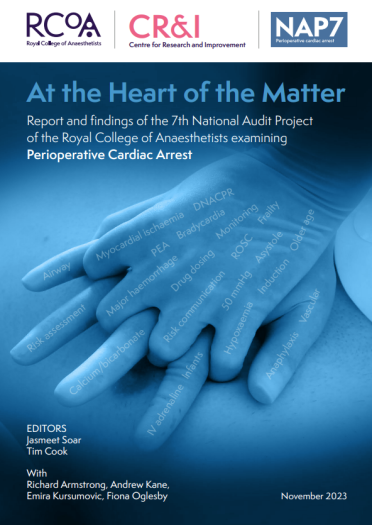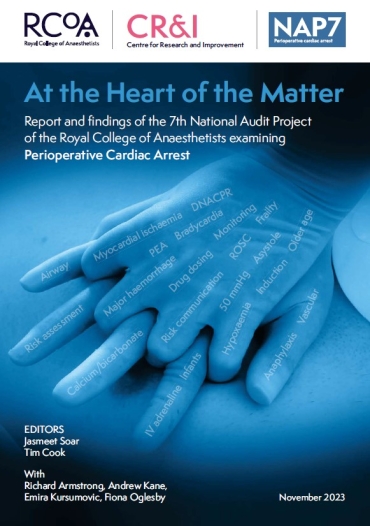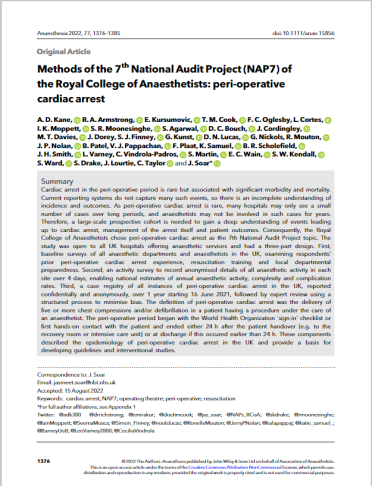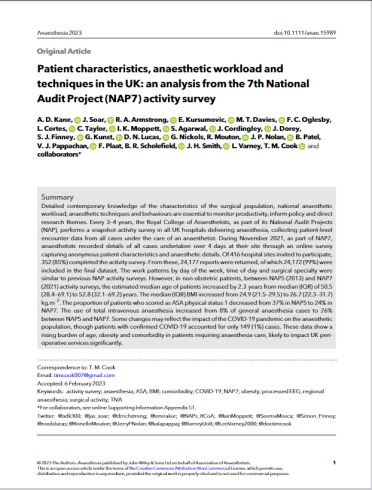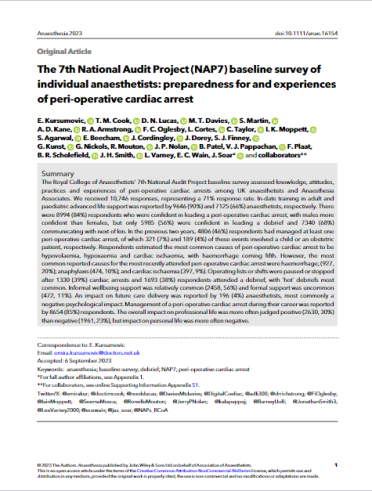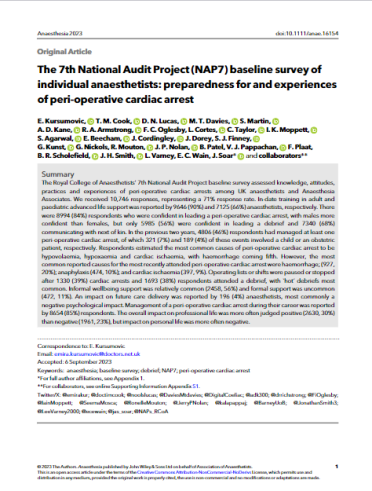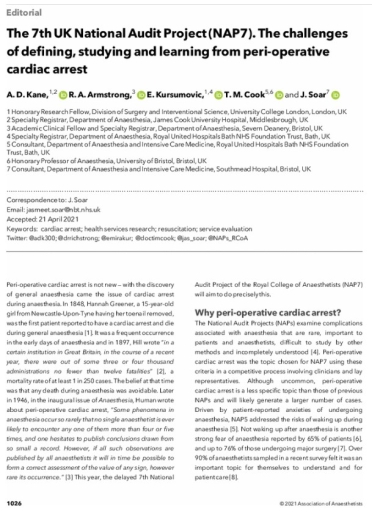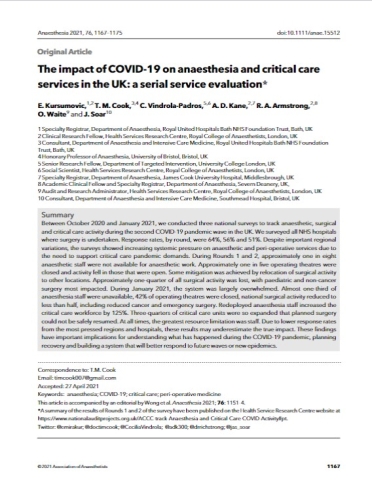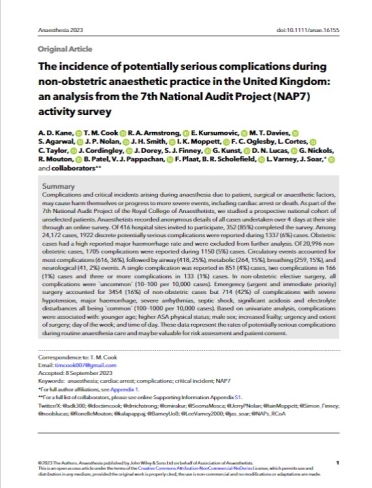NAP7: Perioperative Cardiac Arrest
The Seventh National Audit Project (NAP7) of the Royal College of Anaesthetists examined Perioperative Cardiac Arrest.
NAP7 collected data on cases of perioperative cardiac arrest between 16th June 2021 and 15th June 2022. The report launched on 17th November 2023 and can be found below along with accompanying papers.
NAP7 Overview
NAP7 examined perioperative cardiac arrest. The majority of NHS hospitals participated in NAP7, which studied every case of perioperative cardiac arrest in the UK over a year long reporting period.
We aimed to assess the incidence, current practice and outcomes related to perioperative cardiac arrest.
The structure of NAP7 was similar to previous NAPs, and included three core components, outlined below:
- Baseline Surveys - The baseline surveys were distributed before the launch of NAP7. They sought to evaluate anaesthetists’ previous experiences, preparedness and departmental facilities regarding perioperative cardiac arrest and resuscitation. There were two components:
- Individual anaesthetist baseline survey. An online survey for all UK anaesthetists, including trainees and anaesthesia associates, to investigate previous experiences with perioperative cardiac arrest, resuscitation training and relevant facilities in their workplace.
- Local Coordinator baseline survey. This sought additional summary data about department size, structure, and preparedness for management of perioperative cardiac arrest, e.g. in-house resuscitation training, available resuscitation equipment etc.
- Activity Survey - The activity survey was carried out in Autumn 2021. It served two purposes: to create a quantitative snapshot of anaesthetic activity in the UK and to collect details pertinent to perioperative cardiac arrest including patient demographics, comorbidities and serious complications.
-
Individual Case Registry - The case registry was the repository to collect all details related to cases of cardiac arrest over the 12-month data collection period. These cases provide detailed information about the occurrence, management and outcomes of all perioperative cardiac arrests over the 12-month reporting period. Every case was reviewed, with some cases subject to more detailed review to identify key issues and themes.
Please click below to download the NAP7 report and papers, or to watch videos of the NAP7 Launch event
COVID-19
The impact of COVID-19 on anaesthesia and critical care services in the UK: a serial service evaluation
Thank you to our Local Coordinators and collaborators
We are extremely grateful to those individuals that did the work of NAP7 at a hospital level. Take a look at the collaborators list to find details of the Local Coordinators and collaborators at your hospital.
Meet the NAP7 team
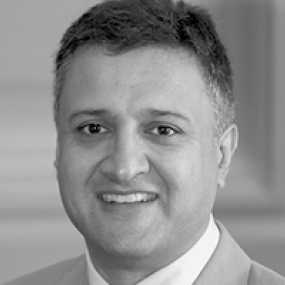
Jasmeet Soar works as a consultant in Anaesthetics & Intensive Care Medicine at Southmead Hospital, North Bristol NHS Trust. He has a major interest in cardiac arrest. His roles include past chair of the Resuscitation Council UK, chair the ALS Task Force of the International Liaison Committee on Resuscitation, and Editor of Resuscitation.
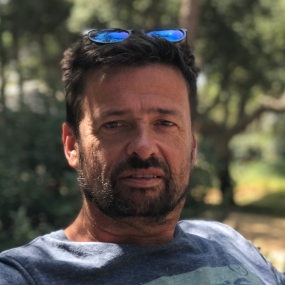
Tim Cook is a full time DGH consultant in Anaesthesia and Intensive Care Medicine. He has been centrally involved in five Royal College of Anaesthetists (RCoA) National Audit Projects: as clinical lead for NAP3 and NAP4 and as co-lead and director of the program for NAP5, NAP6 and NAP7.
Tim has an overall interest in improving safety and quality in anaesthesia and intensive care using a bottom up approach. Tim has been awarded the RCoA Macintosh Professorship 2012-13, the Difficult Airway Society Professorship 2014 and an honorary Professorship in Bristol University.
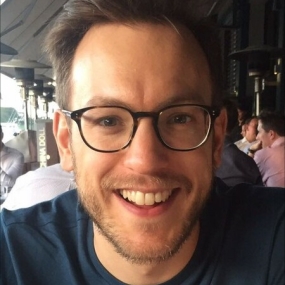
Richard is an Academic Clinical Fellow in Anaesthetics in the Severn Deanery and co-authored the successful NAP7 topic proposal.
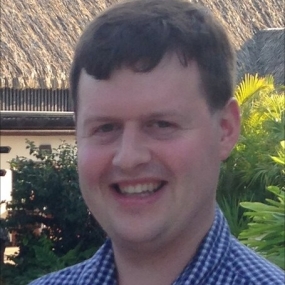
Andrew is currently a consultant anaesthetist based at James Cook University Hospital in Middlesbrough. His research interest in cardiovascular science developed during his PhD and this continues with perioperative cardiac arrest, the theme of NAP7.

Emira is an ST7 anaesthetist in Bath. She leads work on anaesthesia and critical care COVID activity tracking surveys called ACCC-track.
We thank the members of the NAP7 Steering Panel for their hard work and wise advice throughout this project:
- Dr Seema Agarwal - Association for Cardiothoracic Anaesthesia and Critical Care
- Dr Chris Bouch - Independent Healthcare Providers Network
- Dr Jeremy Cordingley - Faculty of Intensive Care Medicine
- Ms Laura Cortés - RCoA Research Project Coordinator
- Dr Matthew Davies - Association of Anaesthetists
- Ms Jenny Dorey - PatientsVoices@RCoA
- Ms Sharon Drake - RCoA Director of Clinical Quality and Research
- Dr Simon Finney - Barts Health NHS Trust
- Mr Simon Kendall - Royal College of Surgeons
- Dr Gudrun Kunst - Association for Cardiothoracic Anaesthesia and Critical Care
- Mr Jose Lourtie - RCoA Head of Research
- Dr Nuala Lucas - Obstetric Anaesthetists' Association
- Prof Iain Moppett - RCoA Centre for Research and Improvement
- Dr Ronelle Mouton - Vascular Anaesthesia Society of Great Britain and Ireland
- Dr Gemma Nickols - Neuro Anaesthesia & Critical Care Society
- Prof Jerry Nolan - Resuscitation Council (UK)
- Dr Fiona Oglesby - University Hospitals Bristol and Weston NHS Foundation Trust
- Dr John Pappachan - Paediatric Intensive Care Society
- Mr Balwant Patel - PatientsVoices@RCoA
- Dr Felicity Plaat - Obstetric Anaesthetists' Association
- Dr Katie Samuel - Research and Audit Federation of Trainees
- Dr Barney Scholefield - Paediatric Intensive Care Society
- Dr Jonathan Smith - Association of Paediatric Anaesthetists of Great Britain and Ireland
- Ms Christine Taylor - RCoA Research Manager
- Mr Lee Varney - Association of Anaesthesia Associates
- Dr Cecilia Vindrola-Padros - Rapid Research Evaluation and Appraisal Lab
- Dr Emma Wain - SAS Anaesthetist
- Ms Sandra Ward - College of Operating Department Practitioners
- Ms Karen Williams - RCoA Research Project Coordinator
Return to the National Audit Projects home page

